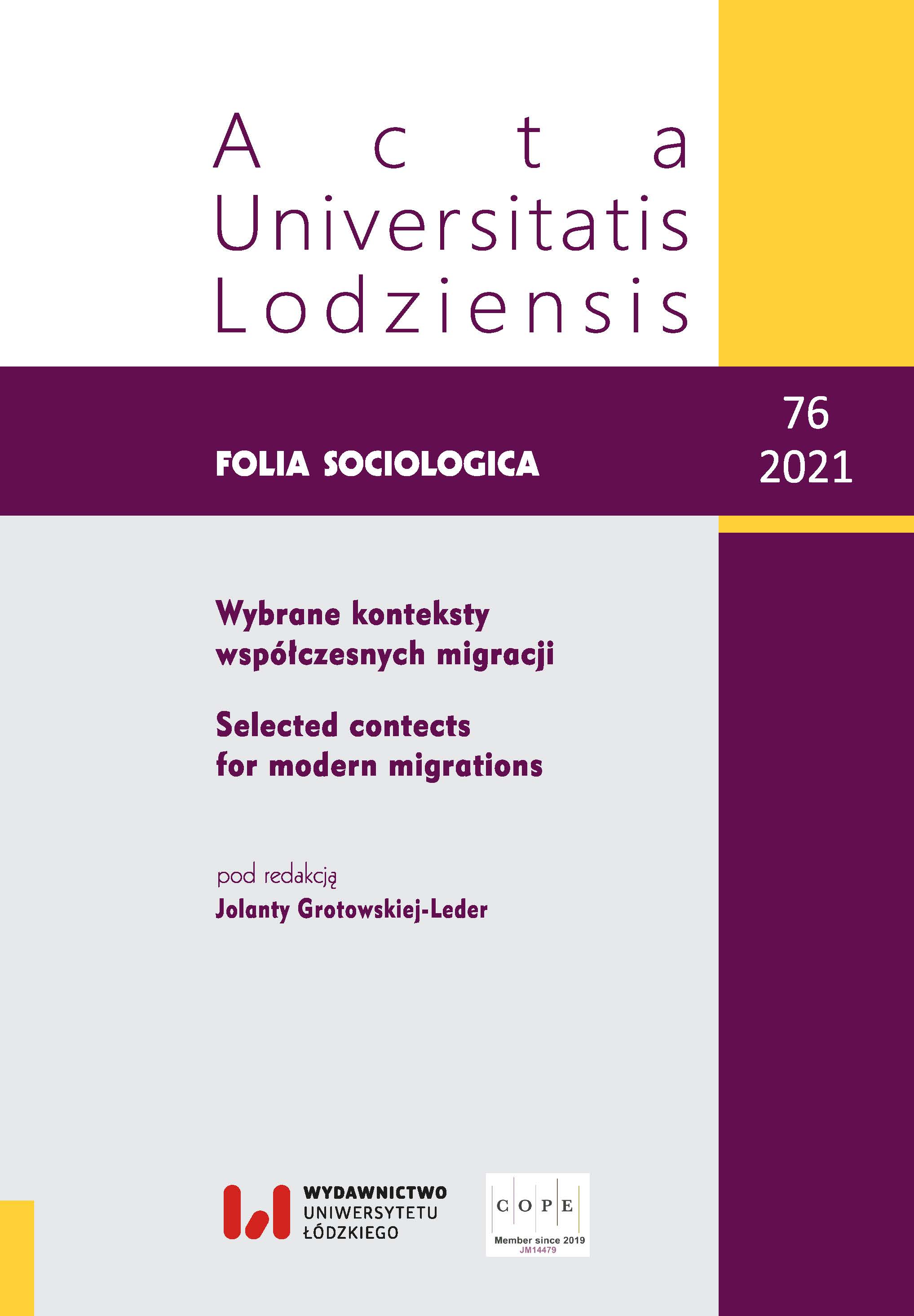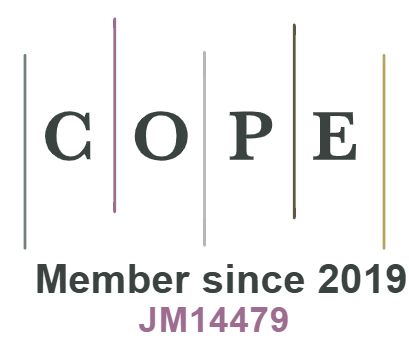Pokolenie Z na rynku pracy – strukturalne uwarunkowania i oczekiwania
DOI:
https://doi.org/10.18778/0208-600X.76.06Słowa kluczowe:
pokolenie Z, praca, zatrudnienie, rynek pracyAbstrakt
Głównym celem niniejszego artykułu jest wgląd w sytuację na rynku pracy oraz perspektywy zawodowe związane z wykształceniem i kwalifikacjami młodych Polaków, przedstawicieli tzw. pokolenia Z, czyli osób urodzonych po 1995 r. Przeglądu sytuacji dokonuję w oparciu o analizę danych zastanych oraz analizę rynku pracy i zatrudnienia osób młodych. Analiza ma na celu udzielenie odpowiedzi na pytania o to, jaką wartość dla młodych osób stanowi praca, jakie miejsce zajmuje w hierarchii wartości, jaki stosunek do pracy mają osoby młode, jak jest przez nie opisywana i ewaluowana, jakie warunki powinna spełniać. Drugim celem jest opis realiów pracy i zatrudnienia najmłodszego pokolenia. Analiza prowadzona jest przy zastosowaniu teorii ekologii politycznej oraz kategorii pokolenia, ale wyłącznie na poziomie wspólnoty położenia. W artykule staram się dokonać rekonstrukcji sposobu strukturalnego kształtowania życia i wyborów młodych ludzi, zakładając, że to kontekst społeczny w głównej mierze wpływa na postawy i poglądy młodych ludzi, stwarzając im określone możliwości strukturalne oraz wyposażając w konkretne zasoby.
Bibliografia
Bauman Z., Leoncini T. (2018), Płynne pokolenie, przeł. S. Żuchowski, Wydawnictwo Czarna Owca, Warszawa.
Google Scholar
Beck U. (2002), Społeczeństwo ryzyka. W drodze do innej nowoczesności, przeł. S. Cieśla, Wydawnictwo Naukowe Scholar, Warszawa.
Google Scholar
Beck U. (2007), Beyond Class and Nation: Reframing Social Inequalities in a Globalizing World, „The British Journal of Sociology”, nr 58(4), s. 679–705.
Google Scholar
DOI: https://doi.org/10.1111/j.1468-4446.2007.00171.x
Bessant J. (2018), Young Precariat and a New Work Order? A Case for Historical Sociology, „Journal of Youth Studies”, t. 21, nr 6, s. 780–798.
Google Scholar
DOI: https://doi.org/10.1080/13676261.2017.1420762
Bochenek M., Lange R. (red.) (2019), Nastolatki 3.0. Raport z ogólnopolskiego badania uczniów, NASK, Warszawa, https://www.nask.pl/pl/raporty/raporty/2593,Raport-z-badan-quotNastolatki-30quot-2019.html (dostęp: 7.05.2020).
Google Scholar
Carr N. (2010), The Shallows: What the Internet Is Doing to Our Brains, W.W. Norton & Company, New York–London.
Google Scholar
CBOS (2019), Młodzież 2018, „Opinie i Diagnozy”, nr 43.
Google Scholar
Defratyka A., Morawski I. (2019), Pokolenie Z w finansach i na rynku pracy. Jak pokolenia Z, X i Y różnią się w świetle danych i badań, Spotdata, https://media.spotdata.pl/aktualnosci/pr/444122/pokolenie-z-w-finansach-i-na-rynku-pracy (dostęp: 1.05.2020).
Google Scholar
Employment and Social Development in Europe (2019), Eurostat, https://op.europa.eu/en/publication-detail/-/publication/747fefa1-d085-11e9-b4bf-01aa75ed71a1/language-en (dostęp: 2.03.2020).
Google Scholar
Foucault M. (2008), The Birth of Biopolitics, Lectures at the College de France, 1978–1979, Palgrave Macmillan, London.
Google Scholar
France A. (2007), Understanding Youth in Late Modernity, Open University Press, London.
Google Scholar
France A. (2016), Understanding Youth in the Global Economic Crisis, Policy Press, Bristol.
Google Scholar
DOI: https://doi.org/10.1332/policypress/9781447315759.001.0001
France A., Roberts S. (2015), The problem of social generations: a critique of the New Emerging Orthodoxy in Youth Studies, „Journal of Youth Studies”, nr 18(2), s. 215–230.
Google Scholar
DOI: https://doi.org/10.1080/13676261.2014.944122
Furlong A. (2013), Youth Studies. An Introduction, Routledge, New York.
Google Scholar
Furlong A., Cartmel F. (2007), Young People and Social Change. New Perspective, Open University Press, Maidenhead.
Google Scholar
Giddens A. (2006), Przemiany intymności. Seksualność, miłość i erotyzm we współczesnych społeczeństwach, przeł. A. Szulżycka, Wydawnictwo Naukowe PWN, Warszawa.
Google Scholar
Giza-Poleszczuk A. (2007), Rodzina i system społeczny, [w:] M. Marody (red.), Wymiary życia społecznego, Wydawnictwo Naukowe Scholar, Warszawa, s. 290–317.
Google Scholar
Harvey D. (2005), A Brief History of Neoliberalism, Oxford University Press, Oxford.
Google Scholar
DOI: https://doi.org/10.1093/oso/9780199283262.003.0010
Hatalska N. (2016), Rola blogerów i youtuberów we współczesnym świecie. Raport, Blog Forum Gdańsk / Urząd Miejski w Gdańsku, Gdańsk.
Google Scholar
Keen A. (2007), Kult amatora. Jak internet niszczy kulturę, przeł. M. Bernatowicz, K. Topolska-Ghariani, Wydawnictwa Akademickie i Profesjonalne, Warszawa.
Google Scholar
Kelly P. (2006), The Entrepreneurial Self and „Youth at-risk”: Exploring the Horizons of Identity in the Twenty-first Century, „Journal of Youth Studies”, t. 9, nr 1, s. 17–32.
Google Scholar
DOI: https://doi.org/10.1080/13676260500523606
Kutwa K. (2018), Polski i europejski rynek pracy. Dla młodych?, [w:] K. Szafraniec (red.), Młodzi 2018, A PROPOS Serwis Wydawniczy Anna Sikorska-Michalak, Warszawa, s. 83–101.
Google Scholar
MacDonald R. (2011), Youth transitions, unemployment and underemployment. Plus ça change, plus c’est la même chose?, „Journal of Sociology”, t. 47(4), s. 427–444.
Google Scholar
DOI: https://doi.org/10.1177/1440783311420794
Mannheim K. (1952), The Problem of Generations, [w:] K. Mannheim, Essays in the Sociology of Knowledge, Routledge, Londyn.
Google Scholar
Mannheim K. (1992–1993), Problem pokoleń, „Colloquia Communia”, nr 1(12), s. 136–169.
Google Scholar
Miles S. (2000), Youth Lifestyles in a Changing World, Open University Press, Maidenhead.
Google Scholar
#MłodziPrzyGłosie. Co wpływa na decyzje zawodowe młodych ludzi? (2018), Deloitte.
Google Scholar
Mørch S., Pultz S., Stroebaek P. (2018), Strategic Self-management: The New Youth Challenge, „Journal of Youth Studies”, nr 21(4), s. 422–438.
Google Scholar
DOI: https://doi.org/10.1080/13676261.2017.1385747
Pańków M. (2012), Młodzi na rynku pracy. Raport z badania, Instytut Spraw Publicznych, Warszawa.
Google Scholar
Pyżalski J., Batorski D., Michalska B. (2018), Internet i otoczenie komunikacyjne, [w:] K. Szafraniec (red.), Młodzi 2018: Cywilizacyjne wyzwania, edukacyjne konieczności, A PROPOS Serwis Wydawniczy Anna Sikorska-Michalak, Warszawa, s. 29–43.
Google Scholar
Pyżalski J., Zdrodowska A.E., Tomczyk Ł., Abramczuk K. (2019), Polskie badanie EU Kids Online 2018. Najważniejsze wyniki i wnioski, Wydawnictwo Naukowe Uniwersytetu Adama Mickiewicza, Poznań, https://fundacja.orange.pl/files/user_files/EU_Kids_Online_2019_v2.pdf (dostęp: 6.05.2020).
Google Scholar
DOI: https://doi.org/10.14746/amup.9788323234098
Roberts K. (2007), Youth Transitions and Generations: A Response to Wyn and Woodman, „Journal of Youth Studies”, nr 10(2), s. 263–269.
Google Scholar
DOI: https://doi.org/10.1080/13676260701204360
Roberts K. (2009a), Opportunity structures then and now, „Journal of Education and Work”, nr 22(5), s. 355–368.
Google Scholar
DOI: https://doi.org/10.1080/13639080903453987
Roberts K. (2009b), Youth in Transition: Eastern Europe and the West, Palgrave, London.
Google Scholar
Sawulski J. (2019), Pokolenie’89: młodzi o polskiej transformacji, Wydawnictwo Krytyki Politycznej, Warszawa.
Google Scholar
Standing G. (2011), The Precariat: The New Dangerous Class, Bloomsbury, London.
Google Scholar
DOI: https://doi.org/10.5040/9781849664554
Stańczak J., Stelmach K., Urbanowicz M. (2015), Spadek liczby małżeństw i urodzeń żywych w Polsce, Główny Urząd Statystyczny, Warszawa.
Google Scholar
Sukarieh M., Tannock S. (2015), Youth Rising? The Politics of Youth in the Global Economy, Routledge, New York.
Google Scholar
DOI: https://doi.org/10.4324/9781315884660
Szafraniec K. (2011), Młodzi 2011, Kancelaria Prezesa Rady Ministrów, Warszawa.
Google Scholar
Szafraniec K., Domalewski J., Wasielewski K., Szymborski P., Wernerowicz M. (2017), Zmiana warty. Młode pokolenia a transformacje we wschodniej Europie i Azji, Wydawnictwo Naukowe Scholar, Warszawa.
Google Scholar
Szlendak T. (2010), Socjologia rodziny. Ewolucja, historia, zróżnicowanie, Wydawnictwo Naukowe PWN, Warszawa.
Google Scholar
Świat Młodych 5 (2019), Grupa IQS, Warszawa.
Google Scholar
Tapscott D. (1997), Growing Up Digital: The Rise of the Net Generation, McGraw-Hill, New York.
Google Scholar
Wallace C., Kovatcheva S. (red.) (1998), Youth in society: The construction and deconstruction of youth in East and West Europe, Macmillan, Basingstoke.
Google Scholar
Wątroba W. (2017), Transgresje międzypokoleniowe późnego kapitalizmu, Wydawnictwo Uniwersytetu Ekonomicznego we Wrocławiu, Wrocław.
Google Scholar
Workforce View in Europe (2019), ADP, https://www.adp.pl/_local/workforce-view-2019/ADP_WhitePaper2019_210319_PL_digi_A4.pdf (dostęp: 7.05.2020).
Google Scholar
Wray-Lake L., Syvertsen A.K., Briddell L., Osgood D.W., Flanagan C.A. (2011), Exploring the Changing Meaning of Work for American High School Seniors From 1976 to 2005, „Youth & Society”, nr 43(3), s. 1110–1135.
Google Scholar
DOI: https://doi.org/10.1177/0044118X10381367
Wrzesień W. (2015), Pokoleniowość współczesnej polskiej młodzieży, „Władza Sądzenia”, nr 7, s. 37–55.
Google Scholar
Wyn J., Woodman D. (2006), Generation, Youth and Social Change in Australia, „Journal of Youth Studies”, nr 9(5), s. 495–514.
Google Scholar
DOI: https://doi.org/10.1080/13676260600805713
Wyn J., Woodman D. (2007), Researching Youth in a Context of Social Change: A Reply to Roberts, „Journal of Youth Studies”, nr 10(3), s. 373–381.
Google Scholar
DOI: https://doi.org/10.1080/13676260701342624
Pobrania
Opublikowane
Jak cytować
Numer
Dział
Licencja

Utwór dostępny jest na licencji Creative Commons Uznanie autorstwa – Użycie niekomercyjne – Bez utworów zależnych 4.0 Międzynarodowe.










